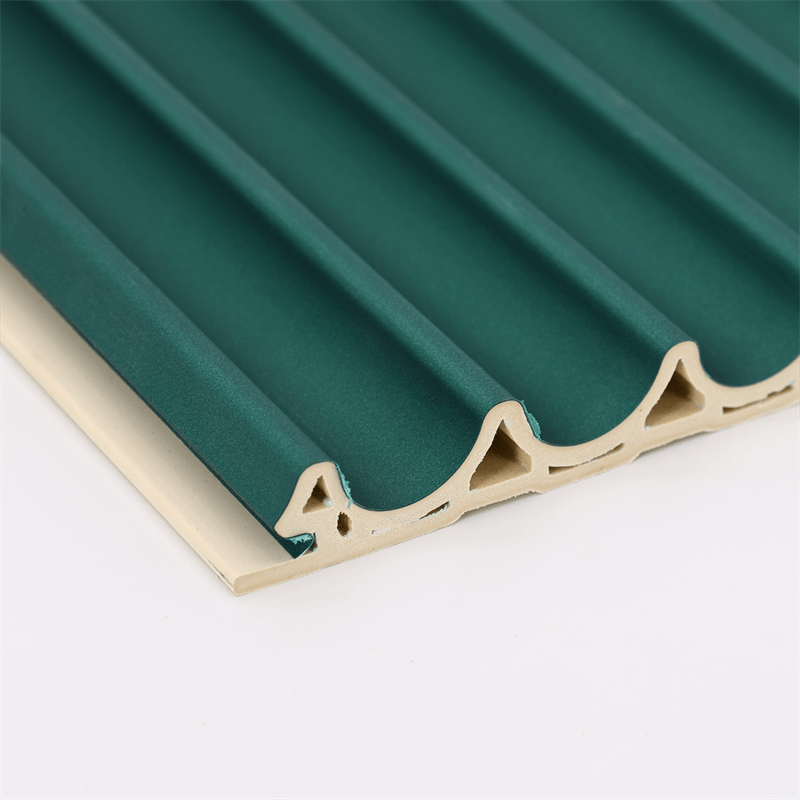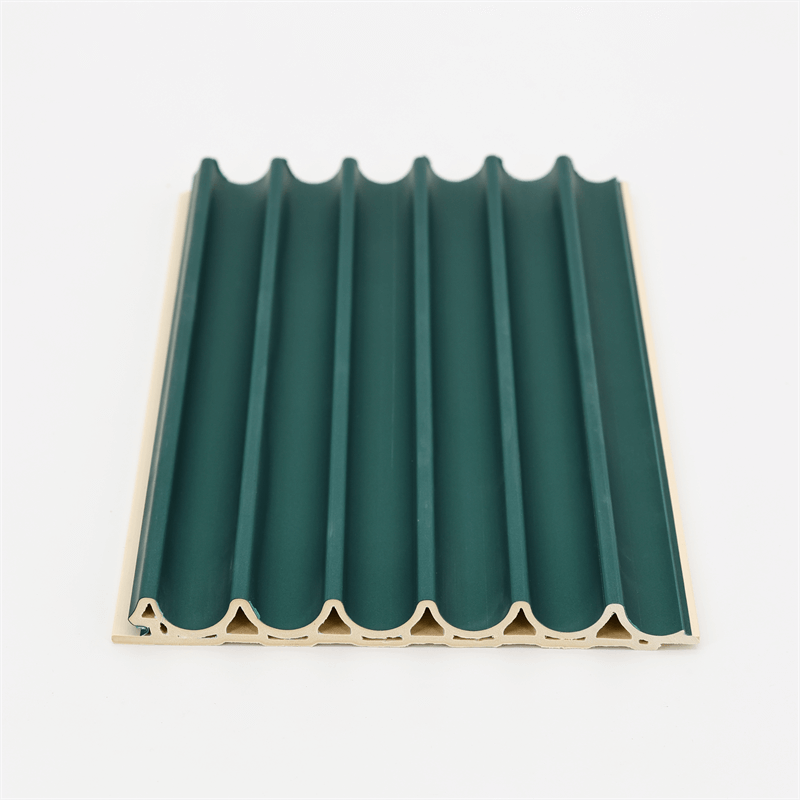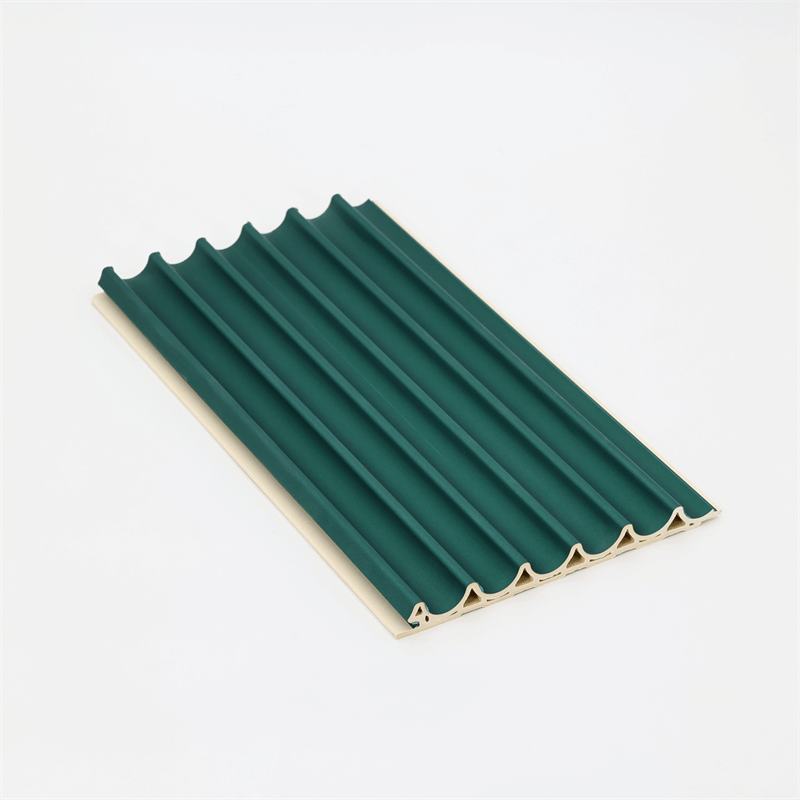In residential spaces, creating a peaceful and comfortable environment is crucial for the well-being of occupants.
Acoustic performance plays a significant role in achieving this goal, as it directly affects the levels of noise and sound transmission within the home.
In recent years, wood-plastic composite (WPC) wall panels have emerged as a viable solution for enhancing acoustic performance in residential spaces.
This essay explores the benefits of WPC wall panels in improving sound insulation, reducing noise transmission, and creating quieter and more enjoyable living environments.
I. Understanding Acoustic Performance in Residential Spaces:
Before delving into the specific advantages of WPC wall panels, it is important to understand the concept of acoustic performance in residential spaces.
Acoustic performance refers to the ability of a building’s construction materials and systems to control sound transmission and manage noise levels.
In residential settings, excessive noise from external sources such as traffic, neighbors, or construction activities can lead to disturbances and negatively impact the quality of life.
Additionally, internal noise generated within the home, such as footsteps, conversations, or appliances, can also contribute to a less peaceful living environment.
II. Sound Insulation with WPC Wall Panels:
One of the key benefits of WPC wall panels is their excellent sound insulation properties.
These panels effectively reduce the transmission of sound from one space to another, providing a quieter and more peaceful living environment.
WPC panels have a dense structure that helps absorb and dampen sound waves, preventing them from passing through the walls.
This sound insulation capability significantly reduces noise transmission, both from external sources and within the home, ensuring a more comfortable and private living experience.
The sound insulation properties of WPC wall panels make them particularly beneficial for bedrooms, study rooms, home offices, or any area where privacy and tranquility are essential.
III. Noise Reduction and Improved Acoustic Comfort:
In addition to sound insulation, WPC wall panels contribute to overall noise reduction in residential spaces.
They help minimize the impact of external noise sources, creating a more peaceful indoor environment.
By reducing noise disturbances, WPC panels improve acoustic comfort, allowing occupants to enjoy a sense of tranquility and relaxation within their homes.
This is particularly important for urban dwellers, as it helps mitigate the effects of traffic noise and other urban sounds.
Moreover, WPC wall panels can be utilized to create acoustic barriers or partitions within the home.
They can be strategically placed to separate noisy areas, such as entertainment spaces or home theaters, from quieter areas, such as bedrooms or study areas.
This zoning approach helps maintain a peaceful atmosphere within different zones of the home, catering to the specific needs and activities of occupants.
IV. Design and Aesthetics:
While the primary focus of WPC wall panels in residential spaces is enhancing acoustic performance, they also offer design versatility and aesthetic appeal.
These panels are available in a wide range of colors, textures, and finishes, allowing homeowners to integrate them seamlessly into their interior design concepts.
WPC panels can be used to create feature walls, accentuate architectural elements, or add a touch of elegance to the overall decor.
They can be customized to match various design styles, from contemporary to traditional, enabling homeowners to express their personal taste and create visually appealing spaces.
The combination of acoustic performance and design versatility makes WPC wall panels an ideal choice for homeowners who value both functionality and aesthetics in their residential environments.
WPC wall panels are a game-changer in enhancing acoustic performance in residential spaces.
By providing excellent sound insulation, reducing noise transmission, and improving overall acoustic comfort, these panels create quieter and more enjoyable living environments.
The incorporation of WPC panels in residential design not only contributes to a more peaceful atmosphere but also enhances the overall quality of life for occupants.
Whether it is for bedrooms, home offices, or entertainment spaces, WPC wall panels offer a practical and aesthetically pleasing solution to address acoustic challenges in residential settings.
As homeowners increasingly prioritize acoustic comfort, WPC wall panels will continue to gain recognition as a valuable addition to residential construction and remodeling projects.
By embracing the benefits of WPC panels, homeowners can create homes that not only look beautiful but also provide a serene and tranquil living experience for all occupants.
Furthermore, the use of WPC wall panels in residential spaces contributes to sustainable living.
These panels are made from a combination of wood fibers and recycled plastic, reducing the reliance on virgin timber and diverting plastic waste from landfills.
By opting for WPC panels, homeowners actively participate in the reduction of deforestation and the promotion of a circular economy.
In addition, the manufacturing process of WPC panels consumes less energy and emits fewer greenhouse gases compared to traditional materials.
This reduction in energy consumption and carbon footprint aligns with the principles of environmental sustainability.
By choosing WPC wall panels, homeowners can contribute to a greener future and minimize their ecological impact.

Moreover, WPC wall panels offer long-lasting durability, reducing the need for frequent replacements or repairs.
Traditional materials such as plasterboard or drywall can be prone to damage, requiring extensive maintenance.
In contrast, WPC panels are highly resistant to moisture, impact, and wear, ensuring their longevity and minimizing the associated environmental impacts.
The durability of WPC wall panels also translates into cost savings for homeowners.
With their low maintenance requirements and long lifespan, these panels prove to be a cost-effective alternative to traditional materials.
Homeowners can allocate their resources towards other aspects of their homes, knowing that their investment in WPC panels will provide value for years to come.
Additionally, WPC wall panels offer the advantage of being easy to install and replace.
The lightweight nature of these panels simplifies the installation process, reducing labor time and costs.
In case of damage or the need for a design update, individual panels can be easily removed and replaced without major disruption or expense.
This flexibility allows homeowners to adapt their interiors as needed, promoting versatility and customization in their living spaces.
In conclusion, WPC wall panels enhance acoustic performance in residential spaces while offering a range of benefits, including sustainability, durability, cost-effectiveness, and design flexibility.
As homeowners prioritize acoustic comfort and environmental responsibility, the adoption of WPC panels becomes an attractive option.
The future of residential construction will continue to embrace these panels as a sustainable and practical solution to create peaceful and aesthetically pleasing living environments.
By choosing WPC wall panels, homeowners can create spaces that not only provide acoustic insulation but also contribute to their well-being and the planet’s health.
With their combination of functionality and sustainability, WPC panels are poised to become a standard feature in residential design, transforming homes into havens of tranquility and eco-conscious living.


